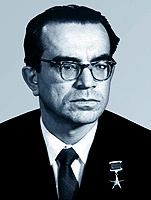This is the first of a two volume Special Issue. Both volumes will have a focus on commoning and property. The essay in this first volume - divided into three main parts, which can be read separately - is based on an inter-disciplinary PhD thesis titled “Property, Commoning and the Politics of Free Software” completed February 2010, by J. Martin Pedersen. Volume 2 will further combine practical insights with theoretical perspectives.
In legal and philosophical terms, property relations are relations between people with regard to things. In this way, the organisation of a commons is encoded in its property rules, which structure its use, access and decision-making rights and responsibilities accordingly. Property, then, is central to debates about commons and commoning: how do commoners relate to each other with regard to a given resource (land, code, rivers, forests, hills, cars) and how is a commons defined vis-a-vis the rest of the world? Questions such as class, gender and other hierarchies, environmental justice, sustainability and spirituality are relevant here. Most of these social dynamics – most of the time, even on the “outside of capital”– turn on property relations: who has access to what (tools, resources, land), when and under what conditions, who gets to decide and how are decisions made?
Often, however, property is juxtaposed to commons – as if commoning was a negation of property. Unfortunately, this view presupposes and consolidates a very narrow understanding of property, where the general is conflated with the particular. Property relations are not only exclusive, private property rights as instantiated within capitalist democracy (that is, a particular conception of property). As a jurisprudential concept, property can be used to understand, analyse, reflect upon and organise social relations with regard to things in any context (this is the general conception of property). The conflation of the general with the particular, which conceals the historical and anthropological fact that property can be and is understood (very) differently, takes on a further dimension in colloquial talk. We have come to accept that property is stuff: things that we own, and that we own exclusively. As a rhetorical device in privatisation arguments it is very powerful because it invokes feelings that are close to home, literally. We say things like “this house is my property”.
Similarly, privatisation arguments in the context of immaterial goods and resources invoke the same passions and feelings: this text or this source code “is the property of Microsoft”. Such a conception of property is not only a conflation, but furthermore hides the complexity of the social relations that property arrangements circumscribe and give rise to.
It is obvious that social, cultural and political practices define any given property regime, hence analytically exploring property relations gives us an insight into the relation between the socio-cultural and the law. It is precisely at this level that commons are created and organised - and through the language of property we can articulate practices of commoning into property protocols (rules and agreements) that can provide stability of the commons on the inside and protection against threats of capital’s enclosure from the outside. Self-determination and autonomy begins by taking the law into your own hands.
The purpose of this Special Issue is to instigate further debate about property, commoning and commons. In this first volume, the Free Software movement, which has autonomously constituted itself by articulating their social values in the GNU General Public License, is presented as an example of a commons, a commoning community, and critically analysed through the lens of property.
Doing so reveals that philosophical and political principles underlying the Free Software and the wider Free Culture movements fail to address the threat of enclosure at the most fundamental level, namely in the material realm. Without confronting ownership of land, its resources, and the means of production, the Free Software and Free Culture movements remain liable to the threat of enclosure.
After all, all immaterial things have a material base (space, energy, labour, resources, distribution) and exclusive control over these material underpinnings is de facto control over the immaterial goods that may spring from their potential.

